New book 'Night Train to Nashville' discusses Nashville's unfulfilled Black, R&B potential
- Oops!Something went wrong.Please try again later.
As Memphis' soul studios were on the decline in 1975, Nashville -- with its thriving R&B-driven, nightclub, radio and recording operations -- could've served as a solution for survival against disco's onslaught.
However, that never occurred because the construction of Interstate 40 carved a destructive path through that scene's Jefferson Street hub.
That episode is one of many issues at the crux of author Paula Blackman's Sept. 12-released "Night Train To Nashville: The Greatest Untold Story of Music City."
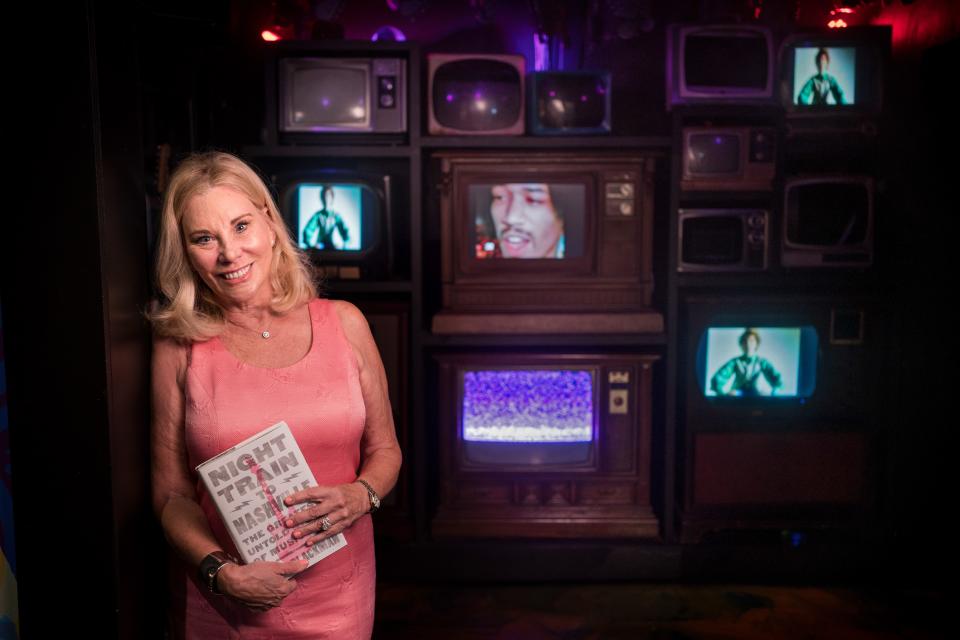
Blackman finds correlation between the struggles of civil rights leaders like Z. Alexander Looby and John Lewis in 1963, and those currently faced by current state representatives Justin Jones and Justin Pearson in the Tennessee State House.
Using Nashville's R&B history to contextualize struggle and progress is a critical factor for Blackman in increasing awareness of her work.
"Authentic, street legitimate and beloved Black R&B music is an honest, spiritual sound, reflective of people's actual lives. It's borne somewhat in society's desire to protest, that smartly communicates empowerment and making human experiences relatable beyond education and the media," she told The Tennessean. "The revolutionary space between America's antebellum period and the civil rights movement is in those sounds."
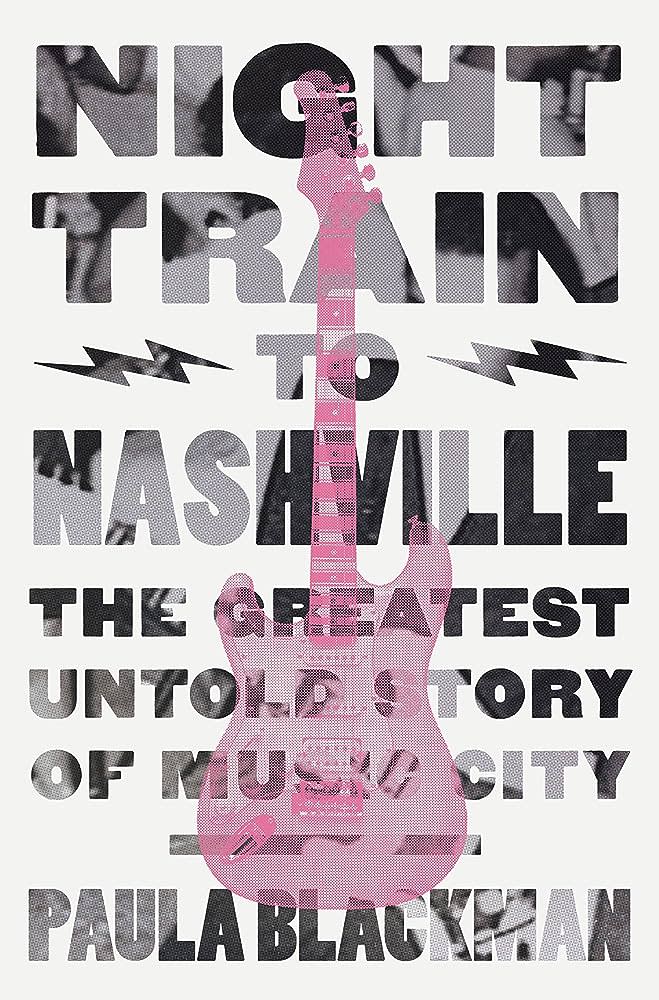
The repercussions of a 'shameful' history
Blackman, 66, is the granddaughter of influential white radio executive Edward "Gab" Blackman of Music City's WLAC radio. Alongside African-American entrepreneur and nightlife impresario William Sousa "Sou" Bridgeforth, the duo cultivated a Nashville music scene that expanded upon the Black "Chitlin' Circuit" concert route.
Nashville became the South's first desegregated city on May 10, 1960. By November 2, 1967, it was decided by District Judge Frank Gray to build Interstate-40 through an area once called "Black Wall Street."
From Blackman's lips, the word "shameful" escapes to describe I-40's construction four decades ago.
The separation of Black people from commerce forced the eventual closure of what Blackman states was "80 percent" of Black-owned businesses in the area. That included the Club Baron, Club Del Morocco, Maceo's, Stealaway and more.
It also ended a halcyon era that could've portended the potential of Black excellence for Nashville.
"Nashville's a peculiar place where the commercial potential of White people loving Black soul music and Black people loving white country music was a story that deserved to be told," says Blackman. "Interstate 40's construction divided not just people. It's separated culture -- and that culture's potential -- for generations in Nashville."
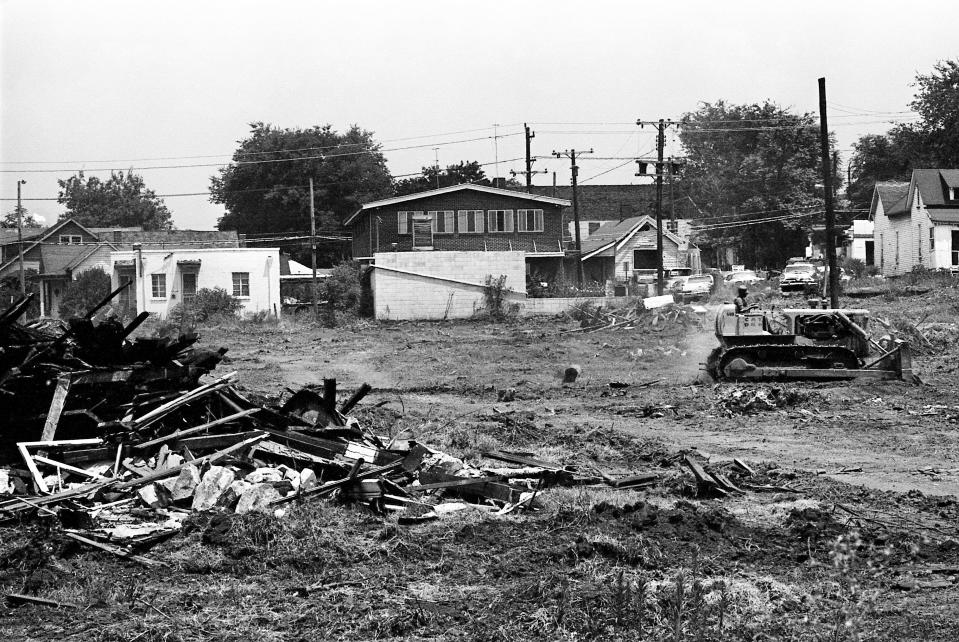
'Street legitimate'-to-government-supported sustainability
Blackman recalled a time in the early 1950s when acts like B.B. King achieved popularity, necessitating Billboard to begin to define blues and "race" records as "rhythm and blues."
Still, "street legitimate" music was fostered in a community where access to the capital was difficult.
National Bureau of Economic Research data shows that since 1950, white Americans have been more than 60 percent more likely to hold financial assets than their Black counterparts.
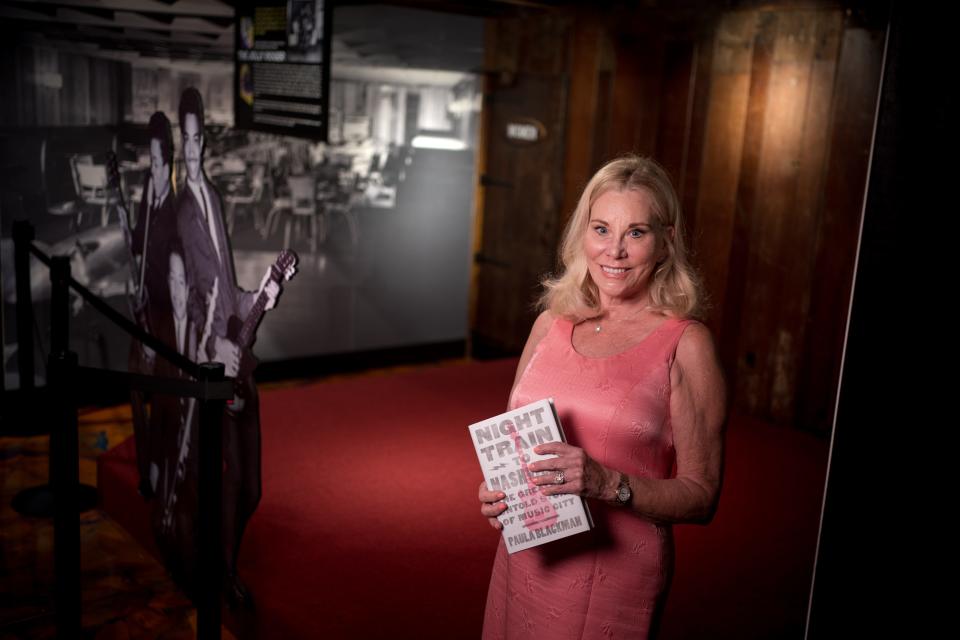
In her book, Blackman refers to Music City's predominantly white and monied political class as the "bourbon aristocracy."
To them, Nashville's desegregation was -- even after it occurred -- still a contentious matter.
"Had Nashville's government been willing to take an active role in positively supporting its Black business class by not limiting the economic growth of businessmen like Sou Bridgeforth, the connection between the city's Black organic street culture and what has evolved into the city's white-defined [cosmopolitan scene] could've naturally evolved."
She cites frequent conversations with Bridgeforth's daughter, Harriet, as essential to framing her thoughts on the matter.
The New Era owner died in 2004, so having his daughter serve as a conduit into his mindset on a multitude of crucial matters offers unprecedented viewpoints to an issue that has also been highlighted via the Country Music Hall of Fame's Vice President of Museum Services Michael Gray's acclaimed work "Night Train to Nashville: Music City Rhythm & Blues, 1945-1970."
"Protests still occurred in Nashville because places like the Cross Keys and Tic Toc Restaurants resisted desegregation," notes Blackman.
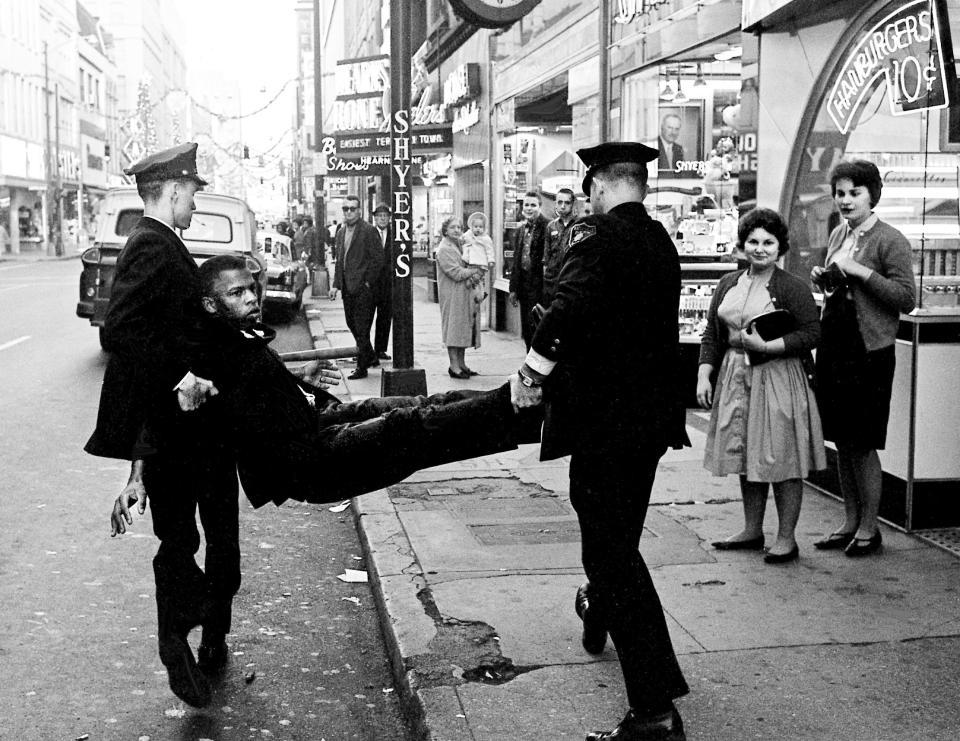
Nashville's soulful scene emerges
Influential recordings like Etta James' 1963 live album, "Etta James Rocks The House," weren't the only benefits of Nashville's Chitlin' Circuit-era charms.
There was a burgeoning traveling circuit of Black musicians caught between pursuing college degrees at schools like Nashville's historically black colleges like Fisk, Meharry Medical, or Tennessee State University, escaping military service, or working around Jim Crow's limitations. This group included freewheeling session musician Jimi Hendrix and his fellow King Casuals band member Johnny Jones. For these musicians, a five-mile stretch of Music City boasting concerts and parties seven nights a week was ideal.
For independent and underground acts like Charles "Wigg" Walker, being able to rub shoulders with artists including James Brown, Ray Charles, Fats Domino, B.B. King, Little Richard and Muddy Waters was a game-changer. It helped to kick-starting globally-renowned careers without the aid of established, well-distributed labels like Atlantic, Chess, King, Motown, or Stax.
Walker worked six nights a week with the house band at Bridgeforth's New Era Club on Charlotte Street. Similarly, acts like Hendrix and Jones competed in loud, amplified guitar battles at venues like the Club Baron.
Though some acts, like Jackie Shane (a pioneering transgender soul performer) or Joe Simon, remained in Nashville, artists like Walker were implored by Brown and others to move elsewhere for greater visibility outside of the veil of Chitlin Circuit and Nashville's massively influential country scene.

"Man, I got out of Nashville as soon as I could. I knew I had family in New York — so my wife at the time and I had somewhere to stay — and I needed more significant avenues for my music," noted Walker in a Jan. 2023 Tennessean feature.
For those who remained, radio stations like Gab Blackman's WLAC -- featuring disc jockeys Gene Nobles, John R., Hoss Allen and Herman Grizzard (who some listeners referred to as "the blackest white disk jockeys on radio" recalls a 1982 New York Times feature) -- were in existence throughout the 1940s through 1970s, broadcasting sounds across much of the United States.
"Street vernacular-driven broadcasts of the hottest records in the streets supported a thriving nightlife scene," states Blackman.
Even deeper, by 1964, those changes reached television via WLAC-TV's "Night Train" program (which debuted five years before Chicago's "Soul Train"). Acts like Hendrix and Jones backed WVOL radio executive and program host Noble Blackwell with local names like The Avons, Jimmy Church, Hytones and Spindells.
As well, Gab Blackman counter-programmed with "The!!!!Beat," a Dallas-recorded color-television-enabled and nationally-syndicated program hosted by Hoss Allen and the result of a business partnership between Blackman and the enterprise behind Porter Wagoner's TV program.
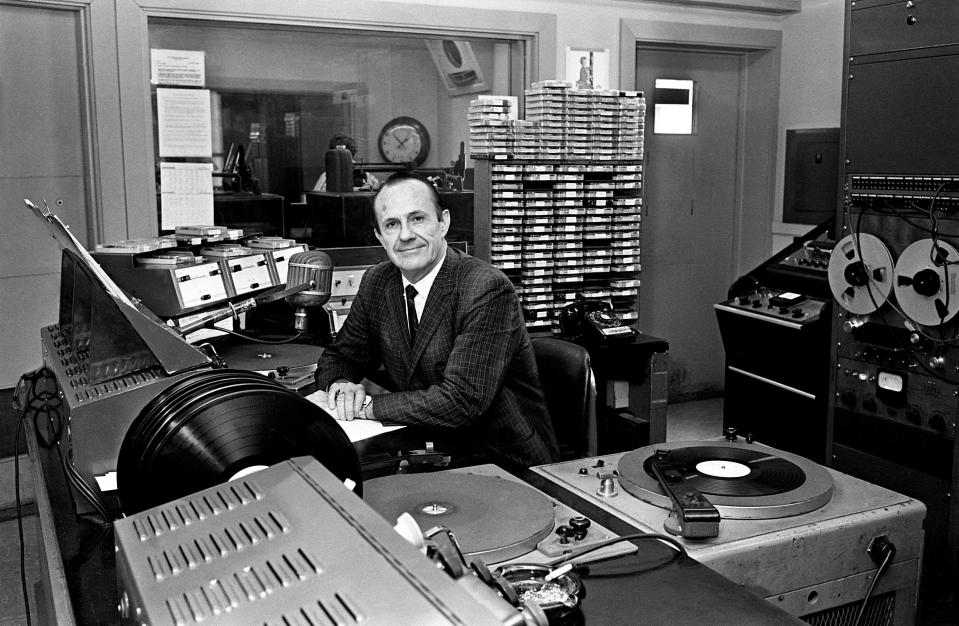
Music City's soulful legacy
Fascinatingly, in Nashville, the hottest soul record on Charlotte Avenue wasn't the same soul record being heard at Harlem's Apollo Theater, in Motown's infamous "Snakepit," or from Chicago, Memphis, or Muscle Shoals, Alabama.
Baptist preacher's son-turned-soul crooner Simon was reflective of the type of artist being honed in Nashville's streets -- streets being similarly walked by acts like James Brown and Little Richard, who desperately wanted the national reach and visibility of stations like WLAC.
A 2021 Tennessean feature notes how WLAC's 50,000-watt radio signal covered much of the Eastern United States and even found the station a sizeable Jamaican audience.
While based in Nashville from 1965-1970 and releasing music on radio DJ John R's Sound Stage 7 Records, Simon achieved 13 Top 40 singles (including a cover of Harlan Howard's Nashville-written song for Waylon Jennings' "The Chokin' Kind," which for Simon yielded a Grammy) and gained favorable comparisons to the work of Sam Cooke by critics like Robert Christgau.
"Achieving Nashville success required elite-level musicianship and a note-perfect ability to reflect remarkably vibrant cultural shifts," stated Blackman.
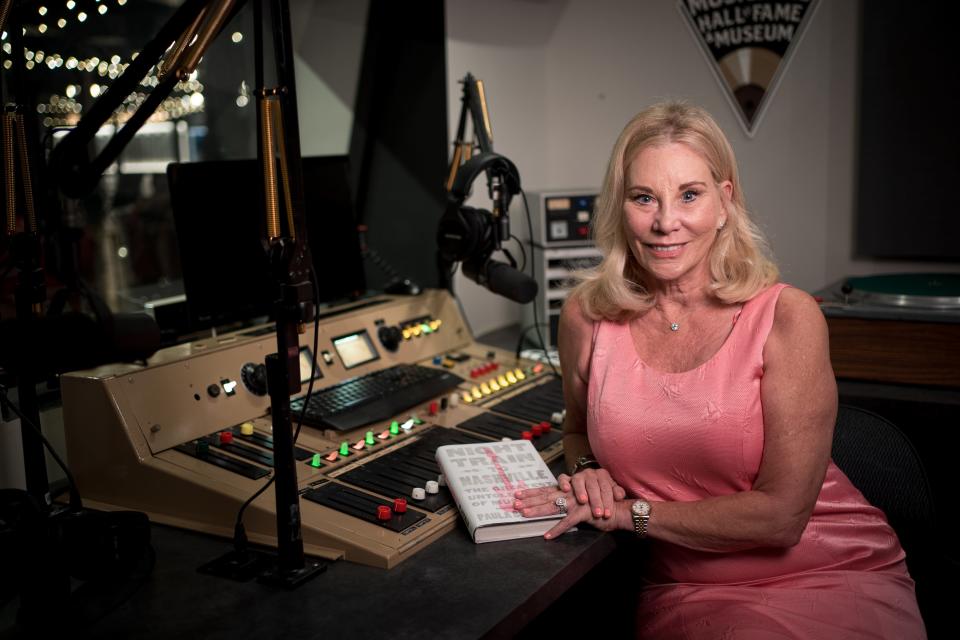
However, by 1972, the Club Baron had been sold to its current owners, the Pride of Tennessee Elks. By 1978, WLAC-AM was no longer in operation. The New Era Club continued to relocate and was kept alive until the mid-1990s.
In a manner consistent with the early 1970s, America is again presented with a crossroads where the world's eyes are on Nashville's ability to synergize pop culture, racial and social unrest, plus lucrative commerce.
Blackman believes that a new "bourbon aristocracy" is now confronted with non-Nashville natives and politicians like State Representatives including Gloria Johnson, Justin Jones and Justin Pearson cognizant of and desiring the benefits that result from Black civil equity.
"It's bittersweet, but people from Chicago, Los Angeles and New York are here now and can dilute the power of the 'bourbon aristocracy' 's influence. With their work and getting hopefully, works like my book in the hands of people who are demanding change, Nashville's ability to create a moment for Black and marginalized people will occur."
This article originally appeared on Nashville Tennessean: New book 'Night Train to Nashville' discusses Nashville's unfulfilled Black, R&B potential

